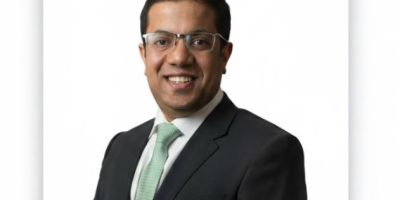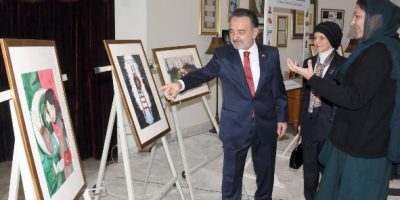Pakistan’s First-Ever EconFest concludes

LAHORE, MAR 12: /DNA/ – Today was the second and last day of Pakistan’s first-ever EconFest. This economic festival was jointly organized by the Pakistan Institute of Development Economics (PIDE), Research for Social Transformation and Advancement (RASTA), and the Pakistan Society of Development Economists (PSDE).
The topics of discussion for today were policy; reforms; building brands and franchising; foreign aid; taxation; local government; law, justice, and economy; the urgency of economic reforms; and other important topics.
Talking about branding and franchising in Pakistan, branding and franchising are still in the earlier stages. However, there is great potential for building Pakistani brands that can create a name for Pakistan in international markets and also contribute to exports. However, many problems stand in the way of brand creation. The most critical issue that Pakistani brands and commerce face is the inconsistency of policy. Whenever a government or even a minister changes, the policies change which wastes businesses’ investment. Another important issue that Pakistani brands face is that of intellectual property rights. As far as e-commerce and online advertising are concerned, there are mainly two platforms for advertising, i.e., Facebook and Google, which are very expensive. Moreover, business-to-customer (B2C) transactions are concerned, there are issues of warehousing in international locations, returns, and payment mechanisms.
In the session on taxation for development the panellists said that because the tax system is complex, individuals prefer to invest in real estate. However, even if the tax system is simplified, the real reason real estate is an attractive investment is that it allows people to park their undocumented. The businessmen participants in the session argued tax collection in Pakistan is low because the system is complex and rent-seeking by tax officials. The former Chairman of FBR, Shabbar Zaidi, claimed that the reality is that only 300 corporations pay the bulk of the collected taxes. He said that there is a lot of wealth is parked in the real estate sector because it is undocumented and low tax rates are low. He said that land records are missing and inaccurate land records which contributes to low tax collection.
In the discussion on tech for change, a pertinent dialogue on the digital and technological landscape of Pakistan took place. The participants presented a holistic overview of Pakistan’s tech realm and focused on the tech-related challenges in Pakistan. The panel discussed issues of design and interface, and the role of societal norms that contribute to the digital divide in Pakistan. They said that the current digital and technological infrastructure is based on Western models, and the usage is predominantly designed along the lines of western life. In Pakistan, the digital divide is a huge problem across social structures such as gender and class. The design and interface of the technology infrastructure are gender-blind and non-inclusive. The panel discussed the prospects of digital and financial inclusion through socially sensitive and contextually embedded tech solutions such as microfinancing and digital wallets. The discussion included the role of government and policy in designing interventions to incentivize digital inclusion.
One of the most interesting sessions of the second day was an open mic session titled “Naukri do ya visa do” (give me a job or give me a visa) in which the youth were allowed to voice their views, concerns, and problems. Students spoke about the lack of jobs in the market. The industry can not absorb the number of graduates being churned out of universities. Students also highlighted that educational curricula are not up to date with the needs of the industry. Universities are not equipping students with the skills needed in the fast-paced market. They spoke about the need for conducive conditions for entrepreneurial ventures. Students also highlighted the structural flaws that inhibit self-employment. Young graduates revealed that they were earning more through freelancing on the internet than they could ever earn through a job. The emotional and psychological burdens of having to move outside Pakistan were discussed. The students and the youth said that nobody wants to leave their homes, rather it is the inequality that they are running away from. Some students also highlighted the need to revisit our work ethic. It was highlighted that with the kind of attitudes our students embody, they would neither get jobs, nor visas. It was a heated and passionate discussion, filled with emotions, good dialogue, insights, ideas, and bitter hard facts. PIDE remains among thought leaders that initiate debate and open up academic discourse to real voices.
Related News

Ali Farid Khwaja appointed as SECP commissioner
DNA ISLAMABAD: The Federal Government of Pakistan has appointed Mr. Muhammad Ali Farid Khwaja asRead More

National essay writing competition 2025 concludes with prize distribution ceremony
ISLAMABAD, JAN 27 /DNA/ – The Embassy of the Republic of Türkiye, in collaboration withRead More


Comments are Closed